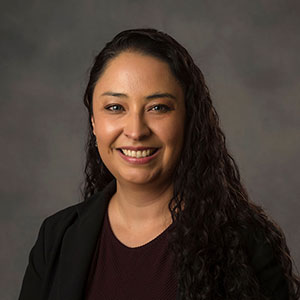Avoid charity scams this holiday season

‘Tis the season for giving and scammers know it, ready to take advantage of your holiday spirit. Here’s what to watch out for to protect yourself from fraud this holiday season.
Stay secure when browsing the web and downloading apps
Be on the lookout for look-alike websites. Check your browser’s web address (URL) bar to ensure the site has “https” in the address. Is that the right web address? Is that email really from Amazon? Don’t click that social media link or email link unless you know for sure. If there’s any doubt, start from scratch and type the URL by hand. Look at it one more time for typos before hitting enter—scammers can set up fake sites to take advantage of web address typos.
Shopping apps are handy—just make sure you download yours directly from the retailer’s website or your phone’s App store. Scammers sometimes set up fake apps to capture sensitive private information—use caution and think twice before downloading.
Don’t let emotions get the best of you on social media, by email or at your door
Someone shares a story on Facebook that really plucks your heartstrings—you want to help. Scammers actively try to take advantage of the goodwill of others. Beware of GoFundMe and other group funding pages—while many are legitimate, some are simply scams.
Same rules apply to email appeals—if you don’t remember signing up for those emails or giving to that organization last year, don’t click through to give this year. Scammers can buy email lists with your name and email.
Other scams show up at your doorstep, often as colorful pamphlets in the hands of fresh-faced teens asking you to support varying causes. Before giving, verify the organization is registered as 501c3 with the IRS by visiting guidestar.org, CharityNavigator.org, or CharityWatch.org.
To make your money go further, avoid professional fundraisers asking for money on behalf of reputable charities. These fundraisers get paid, adding costs that come out of your contribution before they reach the charity. Instead, give directly to the charity.
Give time or give goods instead of money
Research local organizations for opportunities to volunteer or donate goods. Food banks appreciate pricy canned food items like peanut butter, plus they can often put volunteers to work. Winter weather makes new socks a valuable commodity, appreciated by shelters. By donating to and working for an established local organization, you help your community while your family gets the chance to experience the joy of giving.
More resources
BBB Warning: Avoid These Holiday Scams https://www.bbb.org/holidayscams/
Federal Trade Commission: Charity Scams https://www.consumer.ftc.gov/features/feature-0011-charity-scams

Charlene Homan
Charlene Homan serves as the Vice President of Risk Management and Compliance at Sound Credit Union, where she leads compliance initiatives and oversees risk management strategies, including BSA compliance, fraud prevention, quality assurance, and enterprise risk management. With over 15 years in the credit union industry, Charlene has advanced from an entry-level position to her current leadership role, demonstrating comprehensive understanding of credit union landscape that supports Sound Credit Union’s values while ensuring a strong commitment to regulatory compliance and risk management.
As Sound’s appointed Compliance Officer, Charlene ensures adherence to all relevant laws and regulations while providing essential oversight on compliance issues, with the overarching goal of effectively serving members. She actively engages in professional development by attending key industry conferences and training programs. She is passionate about supporting her teams to create awareness to the membership and surrounding communities, with the intent to empower individuals to protect themselves from common scams and other fraud activities.





